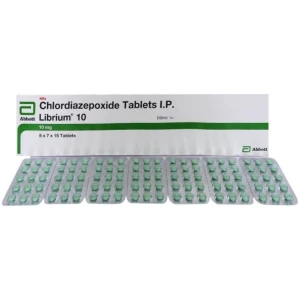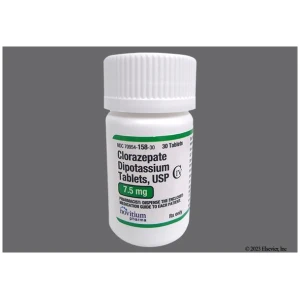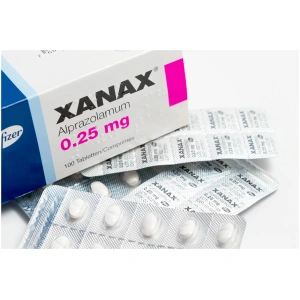Chlordiazepoxide: An In-Depth Look at Its Uses and Effects
Chlordiazepoxide, often recognized by its brand name Librium, is a medication that belongs to the benzodiazepine class. First introduced in the 1960s, it has been a cornerstone in the treatment of anxiety disorders and alcohol withdrawal symptoms. While it holds a significant place in psychiatric medicine, understanding its uses and potential impacts is crucial for both patients and healthcare providers.
What is Chlordiazepoxide?
Chlordiazepoxide is primarily used to manage anxiety and acute alcohol withdrawal. It works on the central nervous system to produce a calming effect, making it particularly effective in alleviating the symptoms associated with these conditions. The medication functions by enhancing the effects of a neurotransmitter called gamma-aminobutyric acid (GABA), which plays a key role in reducing neuronal excitability throughout the nervous system.
The Mechanism of Action
The way chlordiazepoxide operates can be attributed to its ability to bind to GABA-A receptors in the brain. When it binds, it increases the frequency of the chloride channel opening, resulting in a greater influx of chloride ions into neurons. This process leads to hyperpolarization of the neuron and decreases its ability to fire, thereby inducing sedation and reducing anxiety. Understanding this mechanism is vital for grasping why chlordiazepoxide is effective and how it compares to other medications in its class.
Therapeutic Uses of Chlordiazepoxide
Managing Anxiety Disorders
Chlordiazepoxide is primarily prescribed for various anxiety disorders. Patients suffering from generalized anxiety, panic attacks, or social anxiety may find relief through this medication. It’s important to note that while chlordiazepoxide can provide quick relief of anxiety symptoms, it’s typically recommended for short-term use due to the potential for dependence.
Alcohol Withdrawal Treatment
Another significant use of chlordiazepoxide is in the management of alcohol withdrawal symptoms. When individuals abruptly stop alcohol consumption after prolonged use, they may experience a range of symptoms, from mild anxiety to severe complications such as delirium tremens. Chlordiazepoxide helps mitigate these symptoms, promoting a safer and more comfortable detoxification process.
Side Effects and Considerations
Like any medication, chlordiazepoxide comes with a range of potential side effects. Commonly reported issues include drowsiness, dizziness, and confusion. These effects can be particularly pronounced in elderly patients or those who may be on other CNS depressants. Long-term use can lead to tolerance, dependency, and withdrawal symptoms if the medication is discontinued abruptly.
Patients should communicate openly with healthcare providers about any other medications they are taking to avoid potentially harmful interactions. Additionally, lifestyle factors such as alcohol consumption should also be disclosed, as they can affect the drug’s effectiveness and safety.
Dosage and Administration
Chlordiazepoxide is typically administered in tablet form or via an injectable solution. Dosages vary based on the condition being treated and the patient’s specific needs, but healthcare providers often start with a low dose to assess tolerance. Gradually increasing the dosage allows for a tailored approach, aiming to find the minimal effective dose.
Patients should follow their healthcare provider’s guidelines closely to mitigate the risks of side effects or dependency. Never adjust the dosage without professional advice, as doing so can compromise treatment effectiveness and safety.
Conclusion: The Importance of Chlordiazepoxide
Chlordiazepoxide remains a valuable tool in managing anxiety and alcohol withdrawal. Its ability to provide rapid relief makes it a beneficial option for many patients struggling with these conditions. However, it’s crucial to approach its use with caution, understanding both its benefits and risks.
By engaging in open discussions with healthcare providers and adhering to prescribed guidelines, individuals can enjoy the advantages of this medication while minimizing potential downsides. Chlordiazepoxide, when used responsibly, can significantly improve the quality of life for those in need of anxiety relief or support during alcohol withdrawal. Always consult a healthcare professional for personalized advice and treatment strategies tailored to individual needs.







Reviews
There are no reviews yet.